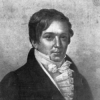Bernard de Mandeville

Bernard de Mandeville
Bernard Mandeville, or Bernard de Mandeville, was an Anglo-Dutch philosopher, political economist and satirist. Born in Rotterdam, Netherlands, he lived most of his life in England and used English for most of his published works. He became famous for The Fable of the Bees...
NationalityEnglish
ProfessionPhilosopher
opposites honor religion
The only thing of weight that can be said against modern honor is that it is directly opposite to religion. The one bids you bear injuries with patience, the other tells you if you don't resent them, you are not fit to live.
money gold pounds
There is no intrinsic worth in money but what is alterable with the times, and whether a guinea goes for twenty pounds or for a shilling, it is the labor of the poor and not the high and low value that is set on gold or silver, which all the comforts of life must arise from.
opportunity people substance
People of substance may sin without being exposed for their stolen pleasure; but servants and the poorer sort of women have seldom an opportunity of concealing a big belly, or at least the consequences of it.
home greatness men
If laying aside all worldly Greatness and Vain-Glory, I should be ask'd where I thought it was most probable that Men might enjoy true Happiness, I would prefer a small peaceable Society, in which Men, neither envy'd nor esteem'd by Neighbours, should be contented to live upon the Natural Product of the Spot they inhabit, to a vast Multitude abounding in Wealth and Power, that should always be conquering others by their Arms Abroad, and debauching themselves by Foreign Luxury at Home.
pride vanity together
Pride and vanity have built more hospitals than all the virtues together,
art animal men
They that examine into the Nature of Man, abstract from Art and Education, may observe, that what renders him a Sociable Animal, consists not in his desire of Company, Good-nature, Pity, Affability, and other Graces of a fair Outside; but that his vilest and most hateful Qualities are the most necessary Accomplishments to fit him for the largest, and, according to the World, the happiest and most flourishing Societies.
want cures prudence
Those who get their living by their daily labor . . . have nothing to stir them up to be serviceable but their wants which it is a prudence to relieve, but folly to cure.
heart hypocrite passion
No habit or quality is more easily acquired than hypocrisy, nor any thing sooner learned than to deny the sentiments of our hearts and the principle we act from: but the seeds of every passion are innate to us, and nobody comes into the world without them.
men numbers ambitious
The first Rudiments of Morality, broach'd by skilful Politicians, to render Men useful to each other as well as tractable, were chiefly contrived that the Ambitious might reap the more Benefit from, and govern vast Numbers of them with the greater Ease and Security.
pride men political
It is visible then that it was not any Heathen Religion or other Idolatrous Superstition, that first put Man upon crossing his Appetites and subduing his dearest Inclinations, but the skilful Management of wary Politicians; and the nearer we search into human Nature, the more we shall be convinced, that the Moral Virtues are the Political Offspring which Flattery begot upon Pride.
pride names quality
This laudable quality is commonly known by the name of Manners and Good-breeding, and consists in a Fashionable Habit, acquir'd by Precept and Example, of flattering the Pride and Selfishness of others, and concealing our own with Judgment and Dexterity.
people beef alive
Some People are not to be persuaded to taste of any Creatures they have daily seen and been acquainted with, while they were alive; others extend their Scruple no further than to their own Poultry, and refuse to eat what they fed and took care of themselves; yet all of them will feed heartily and without Remorse on Beef, Mutton and Fowls when they are bought in the Market.
honesty men people
One good Man may take another's Word, if they so agree, but a whole Nation ought never to trust to any Honesty, but what is built upon Necessity; for unhappy is the People, and their Constitution will be ever precarious, whose Welfare must depend upon the Virtues and Consciences of Ministers and Politicians.
men desire wish
Knowledge both enlarges and multiplies our Desires, and the fewer things a Man wishes for, the more easily his Necessities may be supply'd.